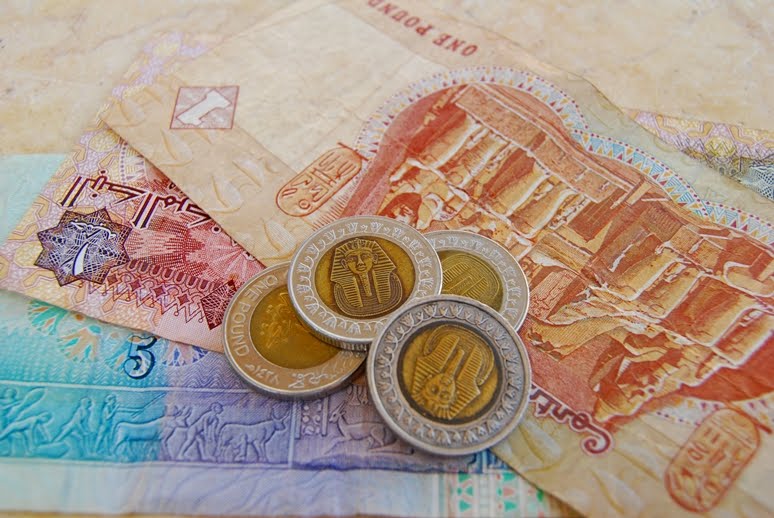
Running has long been used to promote causes; fighting cancer, eradicating poverty, promoting literacy among other worthy endeavours.
It has been used by men to spread awareness, including women’s rights. In Europe, the well-known “walk a mile in her shoes” displays men wearing high heels and walking a mile to draw attention to the different issues facing women today and as a token of appreciation to the hurdles they face.
But in Egypt it’s a different case. It seems running, as almost any other activity, has become a way to bring forth sexism that is accepted by society.
Cairo Runners, which pioneered the incredibly well-organised marathon trend in Egypt, has taken a fall from grace. On Tuesday, they proudly announced a 5K run at midnight for “men only”. The much-shared poster invited “men” to participate in a differently-flavoured run asking female participants not to participate so as “to avoid any trouble”.
For the organisers of Cairo Runners, who are quite well-educated, the invitation posed no insult. They even promised the “women” an “event solely for them”.
So not only have they decided that this event does not fit female runners, but they promised them a treat – like a well-behaved dog.
The event itself is not the issue. The main concern is the culture that treats women as if they are trainable creatures, where men can apply their norms and ideals while the flailing women quietly accept their role.
I am pretty sure that the organisers of the event did not mean to insult women in any way. In their mindset, they are “protecting” them. It did not cross their minds that taking the choice out the women’s hands and deciding for them is the ultimate insult in a society where many still view women in the capacity of their sex, rather than who they are.
The chauvinistic view that women are “trouble” is the main problem in Egypt. This is the reason why many blame victims of harassment and rape. Women bring “trouble”. They draw unwarranted attention; fights can ensue because of them among “sane men”. Apparently it is enough for a woman to breathe in Egypt to be the cause of “eternal doom” as some extremist clergymen have vehemently asserted.
The Egyptian society is quite archaic, if one is to be blunt. The gender roles, in most cases, would nicely fit in an episode of Mad Men (the first season). Disturbing analogy, I know.
Many women still answer to their male relatives, and the poorer the woman, the better chance that she is under the thumb of a man. Ironically, women in many households are the sole financial providers, in particular among the less fortunate. Then why need a man? As one woman who works as a maid once told me: “It’s for appearances. It keeps the tongues from wagging and they will wag worse if I get a divorce.”
Of course, there is a heartening trend growing among these women to leave their useless husbands, but is still not enough. A woman has to go through Khola’— giving the man all the money and gifts he bestowed on her – to get her freedom. Divorce is a very complicated procedure because it is customary – out of culture, not religion – for women to forgo the right to divorce themselves, leaving it solely a husband’s prerogative. It is a societal taboo if a woman asks for her right; it shows her lack of faith in her future spouse. Archaic, isn’t it?
It takes extremely brave men to confront a society and stand among the lines of women demanding their equality; to be treated not as a burden, but as a partner. There are men in Egypt who have been quite vocal about the mistreatment of women in our country. It started with forward thinking Sheik Mohamed Abdu (1849-1905) and Writer Kassem Amin (1863-1908). Both were ardent supporters of gender equality, criticisers of polygamy and advocates of the necessity of educating women to improve society. As a result, both were severely condemned by pillars of society and accused of attempting to ruin its conservative morals. Both men are much hated by the extremely conservative till this very day. Their then-progressive ideas were supported by some equally bold leaders such as Wafdist head Saad Zagloul and renowned philosopher Ahmed Lotfy El-Seid.
It would be remiss to overlook the struggle of female activists at the early 20th century such as Hoda Shaarawi, Safia Zagloul, Doria Shafiq among many others who fought for the right to vote and be represented in the constitutional committee. To write about their struggle would require a book, rather than this measly article.
For the modern Egyptian woman – myself included – it feels as if the calls for equality have stopped well in the 1970s, except for a few current female leaders. The only reason for this abrupt halt that I can personally fathom is education, or rather the lack thereof. The education system is in shambles. The Mubarak regime in its thirty-year tyrannical rule has successfully eradicated quality education. In the early 20th century, public schools offered varied curricula, and women even had a chance to study abroad, which affected the way they viewed life in general and their role in society in particular. Nowadays, public schools are filled to the brim with students who are taught by underpaid teachers, with almost all of them depending on private tutoring, which is a very lucrative business. Many of the private schools are overpriced, offering mediocre education to children whose parents are either unsuspecting or too busy to care about quality when they have the “name” of the school tagged to their child’s. There are even well-established private schools in Egypt which do not accept enrollment of Egyptians! Yes, Egyptians get discriminated against in their country, under the nose of the successive cabinets.
Education, which is the core of any progressive nation, has been on the back-burner for decades in Egypt, resulting in generations that do nor know their heritage and lack the basic instruments of dealing with one another, male-female interaction included. Current Egyptian films and songs that encourage harassment are the norm, together with extremists preaching women as a devilish tool of seduction are combination to ruin any society. A frightening short report surfaced online a week ago, where the film-maker asks young boys, aged 11-18, why they think women get harassed. The frightening answers are almost always based on how the woman is dressed, whether is she is covered or not. The three-minute horror show casts a looming glimpse of the future of this country with regards to women.
Couple education with poverty and you have a recipe for societal disaster, which we are currently living.
Another vital angle is women themselves. In a country where, according to the UN, 99% of women have been harassed either verbally or physically, an alarming trend has been noted. Some young women – particularly adolescents – equate harassment with compliments, a frightening tendency that I have personally witnessed on more than one occasion. Raised in such an environment, these girls only know harassment and these boys can safely say as in the above video, “girls like to be harassed”. It is depressing to witness the disintegration of one’s society day by day. These teenagers are the byproduct of failed parenting, education and governments.
Women are not “trouble”. Society is what gives them trouble, making their life harder than needed, then taking away their rights only to brand them as troublesome. The interworking of the Egyptian society needs a stance. There has to be a political will to empower women through giving them their voices, together with an economic framework that helps society as a whole. An updated education system is also needed, which will require years of work to keep pace with the rampant increase in population. Otherwise, we are heading towards a doomed future.
Cairo Runners has organised many incredibly worthy marathons. They have successfully provided female runners a safe harassment-free environment-because of the sheer numbers of runners participating- to freely practice their favorite sport and for this they are to be commended.
But in the end, the mindset of a pretentiously conservative society won.
It would have been much smarter to leave the event open to whoever wants to participate. Most of the female participants would not have joined anyway (unfortunately) because of cultural norms, but what Cairo Runners would have gained is presenting them with the choice.
Presenting women with choices even if they cannot make the decision on their own – for now – would have empowered them. Choices always empower people regardless of their gender. To be viewed as person, without the constraints of a gender, is the ultimate gesture of respect.
To decide for oneself is the fundamental right in a free society.
Meanwhile, Egypt is still running for sexism.




